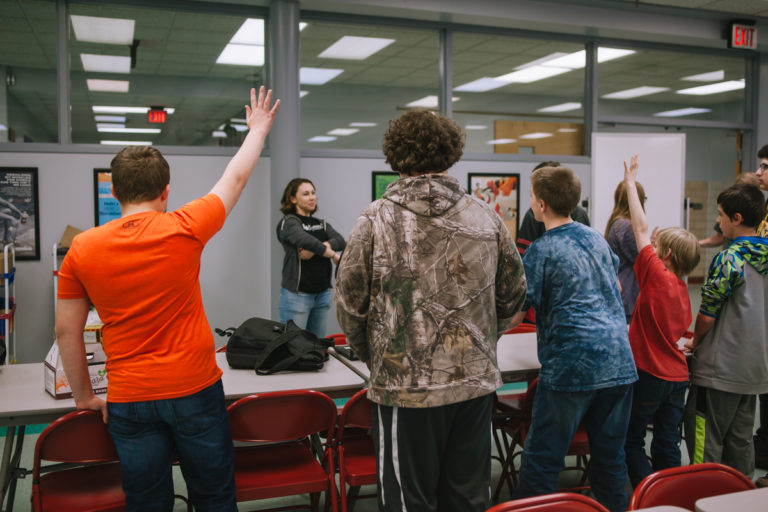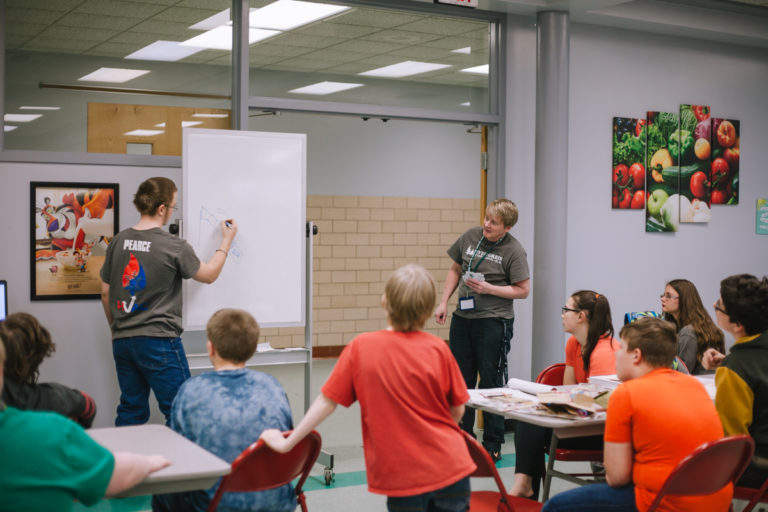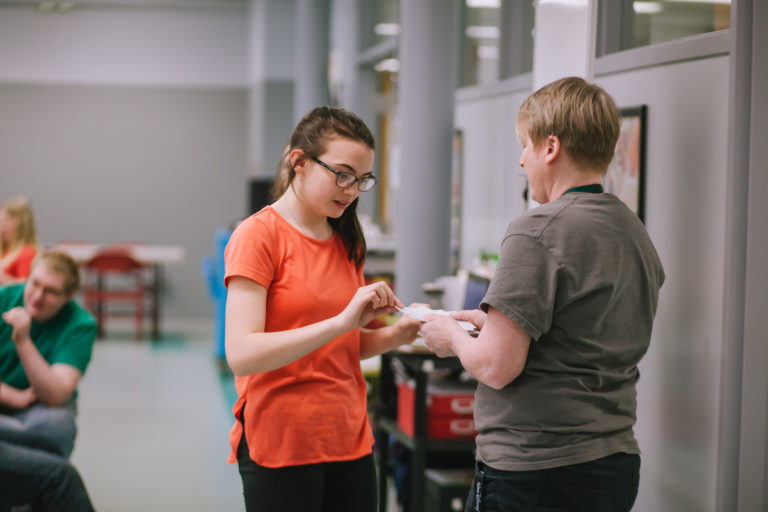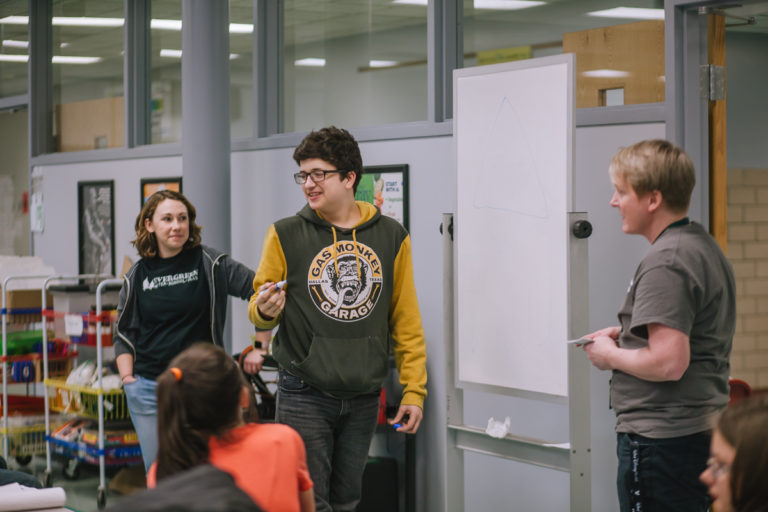Teacher Feature: Barbara Thornton, Evergreen After School Club
Did you know that over 10 million students take part in after-school programs in the United States? The demand for high-quality after-school programs is constantly on the rise as more and more students live in households where their parents or guardians work full-time jobs. Trying to find a way to keep students motivated without it seeming too much like “school after school” can present challenges. This month, we speak with Barb Thornton, who uses The Inventionland® Education Curriculum at the Evergreen Boys and Girls Club to help build students’ self a-STEAM.
Inventionland® Education (ILI): How long have you taught the Inventionland® Education Curriculum?
Barb Thornton (BT): We started using the Inventionland® Education Curriculum in our after-school program at the beginning of our Fall Session last September.

ILI: You are teaching this for an after-school program. How have students reacted to the curriculum?
BT: Members were excited about coming up with a product when we started the program. We lost some momentum between the end of our Fall Session and the beginning of our Spring Session. Our program does not have a mandatory attendance requirement so there are times when members miss due to other activities, appointments, or family obligations.
ILI: Why do you think after-school programs are so important to students and their families?
BT: After-school programs provide a safe environment for students to continue the learning process once the regular school day ends. In our program, we provide students with the opportunity to complete their homework each day prior to starting our STEAM activities for the afternoon. We also provide opportunities for them to interact with others they do not see throughout the day or who are in a different school grade. Positive relationships with peers and our staff members occur because of the environment/activities we are able to provide in our program.

ILI: What’s been the most challenging part of teaching the curriculum?
BT: The most challenging part of teaching in an after-school setting is that my part-time staff members end up supervising most of the time the members are working on their projects. Another challenging aspect is that we do not see the same kids every day so the groups are all at different points in the process.
ILI: How do you handle teaching the curriculum when students are absent? How do you make sure no students fall behind?
BT: Each group is encouraged to stay on track based on the step they are ready to complete. There is no way we can keep all of the groups on the same pace based on the fact we have members who are also involved in other after-school activities and do not attend our program every day we are in session.

ILI: Why do you think STEAM education is important for students?
BT: STEAM education is important because it gives members exposure to a wide variety of skills related to each specific topic. Some members may not like one aspect of STEAM, but working through a program which focuses on all aspects gives them a chance to learn new skills.
ILI: What does 21st-Century Education mean to you?
BT: 21st-century education is about providing our members with the skills they need to survive in the workforce and in life after they have graduated from high school.
ILI: What inspired you to become an educator?
BT: I wanted to be a coach. Prior to being hired as Project Director with Evergreen After School Club, I had the opportunity to serve as a substitute teacher for several local school districts and I coached high school volleyball for most of those years.

ILI: Any hobbies you’d like to share?
BT: I spend most of my free time serving on several volunteer teams at my church and I enjoy spending time outside.
ILI: Most memorable experience teaching the curriculum so far?
BT: I would say the most memorable part was the beginning of the program when the members were discussing ideas for different products. Some of the groups had several good ideas and watching them decide which would be the best option to focus on was an interesting process.